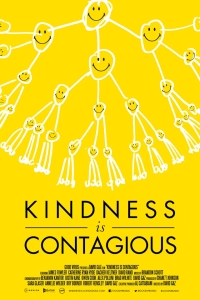The results suggest that each additional contribution a subject makes to the public good in the first period is tripled over the course of the experiment by other subjects who are directly or indirectly influenced to contribute more as a consequence.
The contagious effect in the study was symmetric; uncooperative behavior also spread, but there was nothing to suggest that it spread any more or any less robustly than cooperative behavior, Fowler said.
Many studies have shown that mindfulness meditation that includes LKM (loving-kindness meditation) can rewire your brain. Practicing LKM is easy. All you have to do is take a few minutes everyday to sit quietly and systematically send loving and compassionate thoughts to: 1) Family and friends. 2) Someone with whom you have tension or a conflict. 3) Strangers around the world who are suffering. 4) Self-compassion, forgiveness and self-love to yourself.
Doing this simple 4-step LKM practice literally rewires your brain by engaging neural connections linked to empathy. You can literally feel the tumblers in your brain shift and open up to empathy by spending just a few minutes going through this systematic LKM practice.
